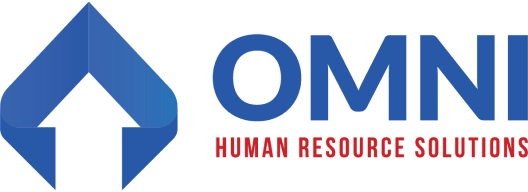Introduction
Choosing to outsource HR is a strategic decision that can help organizations streamline operations, improve compliance, and strengthen their people practices. But how do you know if HR outsourcing is right for your organization?
Here are six clear signs that it may be time to explore a partnership. Each scenario includes a real-world example inspired by organizations like those OMNI serves—and demonstrates how outsourced HR can deliver the right blend of transactional, problem-solving, and transformational support.
1. You don’t have a dedicated HR professional or team.
Without in-house HR, people operations often fall to employees with unrelated roles—finance, operations, or executive leadership—who may not have the time, tools, or expertise to manage them properly. This often leads to compliance risks, inconsistent practices, and employee frustration.
Example:
A private K–12 school has grown rapidly over the past three years, but HR tasks still fall to the school’s business manager. Payroll is managed manually, onboarding is inconsistent, and no one is tracking leave or compliance documentation. OMNI’s outsourcing team steps in to serve as the school’s full HR department—streamlining payroll and benefits (transactional), developing a compliant onboarding process and employee handbook (problem-solving), and providing strategic counsel to the leadership team on building a more intentional workplace culture (transformational).
2. Your team is spending too much time on people issues.
When HR issues pull leaders away from strategic priorities, morale and productivity suffer. Managers often struggle with employee discipline, performance issues, or internal conflict—without support or clarity on how to proceed.
Example:
A nonprofit’s executive director finds herself frequently managing leave requests, fielding policy questions, and dealing with interpersonal friction among staff. It’s draining time away from mission-driven work. OMNI steps in to manage leave tracking and compliance (transactional), advise on performance management and conflict resolution (problem-solving), and facilitate leadership development sessions for the management team to strengthen communication and accountability (transformational).
3. You’re growing, restructuring, or entering a new phase.
Growth and change are exciting—but they also require structure. Without HR infrastructure, organizations may outgrow their systems and put themselves at risk.
Example:
A family-owned manufacturing company has doubled in size in two years. There’s no centralized process for onboarding, time tracking, or performance management. Employees are unclear on job expectations, and turnover is rising. OMNI implements timekeeping and payroll systems (transactional), develops job descriptions and introduces a formal performance review process (problem-solving), and works with leadership to align their organizational structure with business goals and future growth (transformational).
Keep Reading: Strategic HR Planning: Turning Organizational Goals into Tangible Results
4. You’re struggling to keep up with compliance.
HR compliance can be complex—especially when managing wage and hour laws, leave policies, employee documentation, and changing regulations. Gaps can lead to audits, fines, or reputational damage.
Example:
A city department is managing a growing workforce but lacks clarity around FLSA classifications, I-9 tracking, and employee file storage. There’s no formal policy manual or training process for supervisors. OMNI steps in to implement secure, web-based recordkeeping and compliance tracking (transactional), update policies and facilitate harassment prevention training (problem-solving), and work with city leaders to improve their compliance oversight and risk mitigation strategy (transformational).
Keep Reading: I-9 Compliance Audit Services: Avoid Fines & Ensure Accuracy
5. You want access to HR systems and tools without building them internally.
Smaller and mid-sized organizations often can’t justify the cost of enterprise-level HR technology—but outsourcing gives you access to systems, tools, and experienced professionals without having to manage them yourself.
Example:
A 60-person professional services firm wants to centralize onboarding, streamline payroll, and give employees access to digital benefits and policy information. OMNI provides access to an applicant tracking system and a web-based HR portal (transactional), helps revise the employee handbook and implement a performance documentation process (problem-solving), and works with firm leadership to create a scalable HR roadmap that supports employee engagement and long-term talent development (transformational).
6. You need both operational help and strategic HR guidance.
Some organizations may have basic systems in place but need a more cohesive and proactive approach to their people strategy. HR outsourcing offers access to both hands-on support and big-picture thinking.
Example:
A regional healthcare provider has a small HR staff handling daily operations but lacks the bandwidth to focus on retention, leadership development, and succession planning. OMNI supplements the internal team by managing payroll tax filings and benefit renewals (transactional), supporting employee relations and policy updates (problem-solving), and collaborating with senior leaders to design a leadership development program and long-term workforce strategy (transformational).
Making the Right Decision
If your organization is experiencing one or more of these signs, HR outsourcing may be the right solution. The best partnerships offer flexible, scalable support that meets you where you are—handling the basics while helping you build toward the future.
Ready to Evaluate Your HR Needs? Let’s Start the Conversation.
OMNI’s HR Outsourcing team acts as a true extension of your organization—providing the tools, expertise, and insight you need to build a compliant, engaging, and high-performing workplace.
Contact OMNI to explore how our full-spectrum HR outsourcing model can support your organization’s people, strategy, and success.

